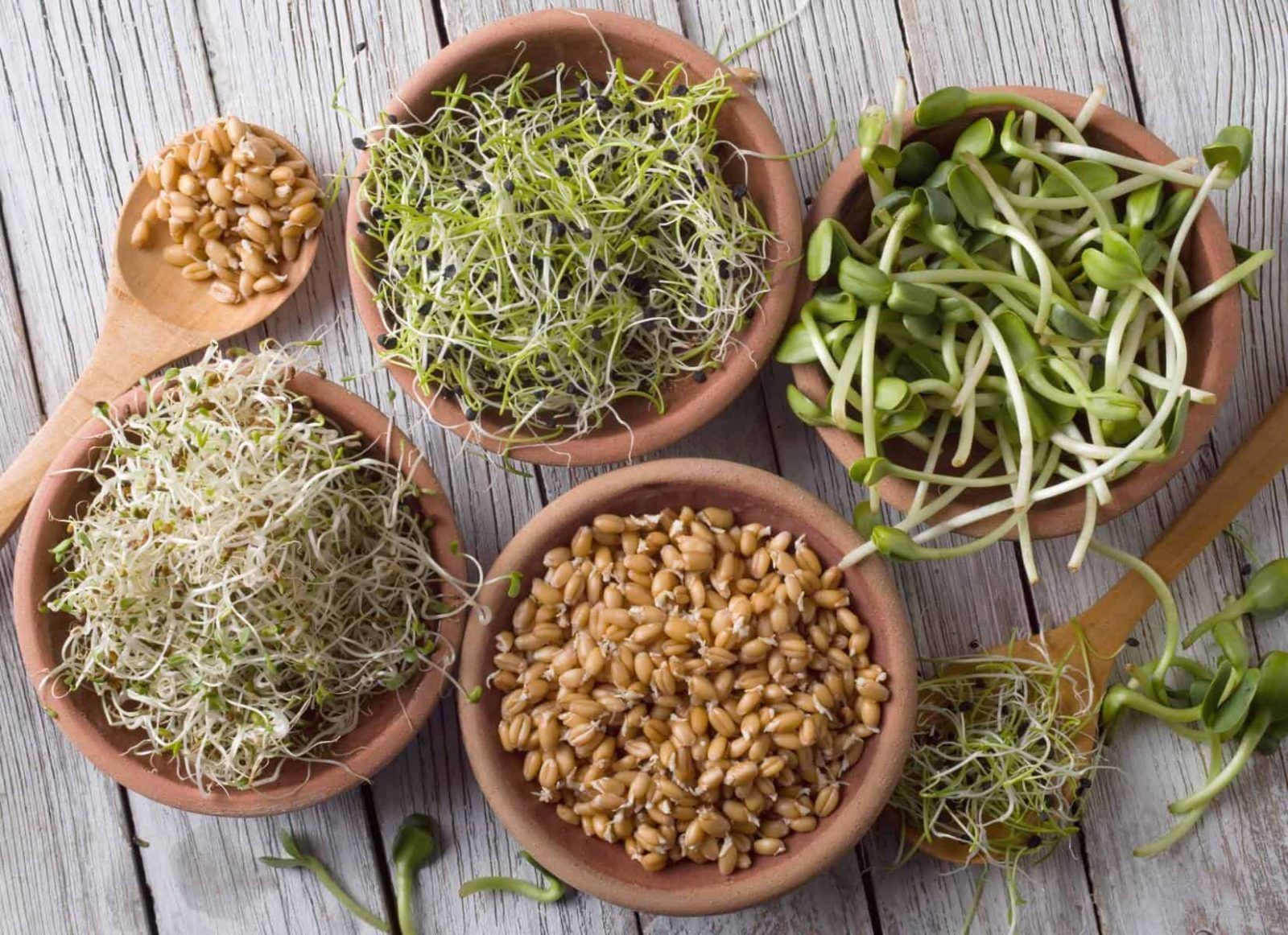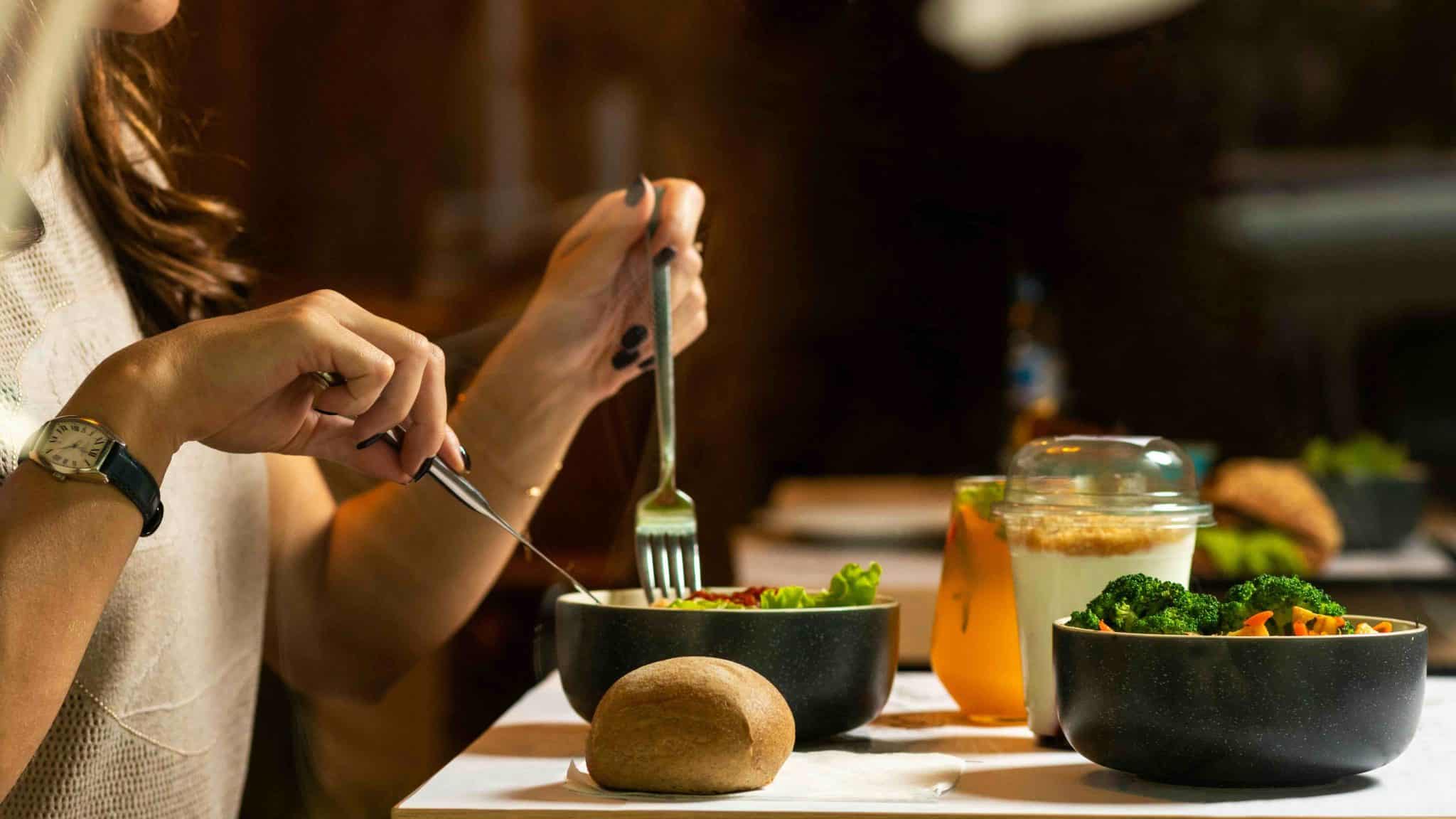Germination is the process by which nuts such as legumes, grains, seeds and almonds begin to sprout. All the edible grains, seeds, legumes, nuts and some seeds such as sunflower seeds can be germinated. Germination enriches vitamin, protein and enzyme value of nutrition. You can eat germinated foods alone or you can prepare nutritious foods by adding them into your foods.
Why Germination is Important?
Seeds put themselves under the protection inside the anti-nutritional substances in order to protect themselves for a long period of time. Germination turns the dormant seed into a living plant, then anti-nutritional substances open and begin to serve valuable nutrition inside of it. Germinated foods are filled with vitamins, minerals, phytonutrients, enzymes, proteins and fatty acids.
Germinated foods, together with sea vegetables and blue-green algae are the three most important protein sources. Protein contained in these foods comes in a form that our body needs, i.e. in raw amino acids.
Another reason for germinated nutrients to be easily digested is that they are rich in enzymes which help us to digest our foods. Consuming germinated nutrients before eating cooked foods can help digestion and relieve your stomach and intestines.
How are Seed Germinated?
The nutrient to be germinated is spread over a flat bottom container; fresh water is poured on top of them and they are kept undisturbed for a while. At the end of that time, nutrients get filtered and the seeds are flushed off. Clean cotton fabric is laid over the bottom of a shallow container. Seeds thus kept in the water are spread over this cloth. Another wet cotton cloth layer is laid over these seeds. The seeds are frequently irrigated with fresh water so that they do not dry out. They are washed again if necessary and put in between the wet clothes again.
Miraculous Nutrient: Wheatgrass
Wheatgrass is one of the leading super nutrients that nature offers us. Wheatgrass contains 92 of 102 minerals that our body needs. It is a rich source of B17 and B vitamin believed to kill cancer cells. A, C, E vitamins, calcium, iron, phosphor and magnesium are heavily present in wheatgrass. Wheatgrass, which is a much stronger source than animal nutrients in terms of protein, contains 20 amino acids, 8 of which cannot be produced by the body, and it does not contain gluten either. Its most important characteristic is the chlorophyll in its content. Chlorophyll is similar to hemoglobin, which carries oxygen to the blood, and consuming wheatgrass help clean your blood. Wheatgrass is among the most important nutrient that you need for a healthy life with its therapeutic, protective, reconstructive and regenerative characteristics. That is why wheatgrass is one of the most commonly preferred seeds in germination.
Germination of Wheat Grass
After grasses are kept in water for 12 hours, they get washed and then left in water for another 12 hours. After that, you can begin to see sprouts on the wheatgrass. Once the seeds, which begin to sprout, are planted to the soil you’ve prepared, just give them fresh water at 4-5 days intervals and watch their growing process. After 7-10 days, you can cut off the growing grass and start drinking grass water by juicing the grasses with your grass juicer.
Other Sprouts
- A germinated lentil contains a high level of protein, filled with amino acids, is diuretic and a stimulant for adrenaline system.
- A germinated mung bean contains a high level of protein and has a regulatory influence on the intestines, and it also reduces blood sugar.
- A germinated almond is a source of vitamin E and calcium and reduces cholesterol and risk of cardiovascular diseases.
- A germinated chickpea is rich in unsaturated fat and iron and is beneficial for pancreas, stomach and heart.
- A germinated sunflower seed is a source of vitamins E and B and helps reducing cholesterol.
Germination Time
Barley: kept in water for 8-14 hours, germinates in 1-1,5 day (pot barley)
Buckwheat: kept in water for 5-20 minutes, germinates in 1-1,5 day (raw buckwheat)
Oat: kept in water for 8-14 hours, germinates in 1-1,5 day (Unshelled oat)
Quinoa: kept in water for 2-4 hours, germinates approximately in 12 hours
Rice: kept in water for 12-18 hours, germinates in one day (brown raw rice)
Rye: kept in water for 8-14 hours, germinates in 1-1,5 day
Almond: kept in water for 10-14 hours, germinates in one day (unbaked, raw almond). Germination and preservation time should not exceed 2 days.
Chickpea: kept in water for 12-18 hours, germinates in 1.5 days or more
Fenugreek: kept in water for 8-14 hours, germinates in 18 hours
Sesame: kept in water for 8-14 hours, germinates in 1-1,5 days (raw sesame). Germination and preservation time should not exceed 1,5 day.
Sunflower seed: kept in water for 8-14 hours, germinates in 18 hours (raw seeds). After waiting in the water ends, peel off the shells.
Lentil: kept in water for 8-14 hours, germinates in one day ( red, black or green lentil). Little one grows much faster.
Black eye pea: kept in water for 12-14 hours, germinates in one day.





